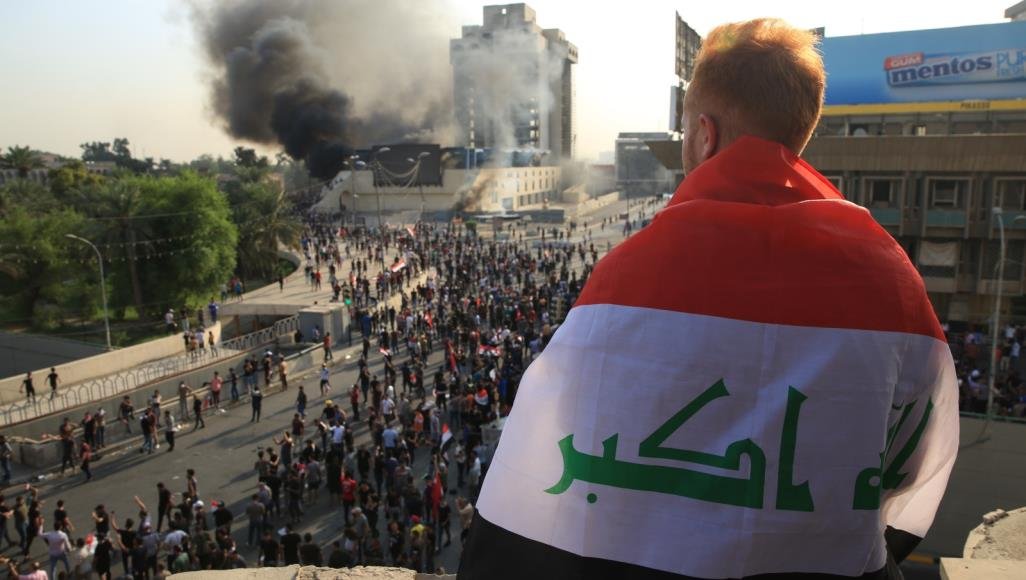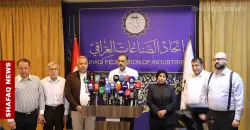Iraq’s Story Isn’t Over

Shafaq News/ Retrospective analyses of the 2003 invasion of Iraq usually fixate either on past U.S. failures or on how the “new Iraq” became part of Iran’s sphere of influence. As a result, Iraq has been reductively viewed in the West through two simplistic lenses: its ability to be a reliable partner in the fight against terrorism and its willingness to push back against Iran.
What has gone largely unnoticed in the standard Western analysis of Iraq is where the nation’s democratic potential truly lies: in a diverse Iraqi society increasingly asserting itself through a defiant attitude toward its rulers and peacefully looking for ways to fix a broken system without necessarily knowing how and where to begin.
Much of this society is currently in the slow process of political maturation and is benefiting enormously from a number of democratic features made possible by the fall of former Iraqi leader Saddam Hussein’s regime. The ideal vision for Iraq post-2003 did not materialize as foreseen, but this should not be the sole prism through which we judge Iraq now or calculate policy toward it in the future.
The first democratic feature is, by the standards of established democracies, the relative freedom of expression that Iraqis have exercised and defended against all odds, enabling them to criticize governments and parties as well as to be exposed to different opinions and perspectives, which thus allows them a comparative sense of political reality both within their country and elsewhere. This has led to a useful disillusionment that has translated into a slow self-correcting process, one that highlights the fragility of Iraq’s unpopular political status quo.
The many Iraqis who went happily to the polls in 2005, when the nation experienced its first two democratic elections, to vote based on ethno-sectarian identity rather than on a political program have started to become skeptical of the candidates and parties that are available to choose from today—rightly questioning the utility of an identity politics that deprives them of their individuality.
This new dissatisfaction can be seen in the declining voter turnout despite increasing birthrates. Iraq’s population grew from 25 million in 2005 to approximately 42 million in 2022. Yet while almost 80 percent of eligible voters turned out to vote in the December 2005 parliamentary election, a meager 41 percent at most took part in the October 2021 early elections (although this statistic has been contested by many observers who claim it is inflated because it represents 41 percent of registered Iraqi voters, not eligible voters, millions of whom did not register to vote).
And there is also the generational shift to consider. For a majority of Iraqis, Saddam is a distant and irrelevant memory; many of them did not grow up under his despotism and ideological indoctrination. Iraqis under age 25, who make up around 60 percent of the population, discovered the world and one another through social media platforms—the one cheap and reliable form of entertainment, heavily used in a country with little recreational outlets for the many unemployed youth.
These young people want what their peers everywhere want: a decent education, reliable services, employment opportunities, and the right to speak their minds and lead the lives they want. In polls conducted in 2022, the top priority cited by Iraqis was job creation, followed by political and governmental reform; education; women’s rights; and strengthening the military, police, and health care system.
The second democratic feature is an electoral mechanism that permits a periodic, albeit difficult, rotation of power. Despite efforts to corrupt this mechanism and turn it into a mere formality to renew the same ruling parties in power, the mechanism survives and has in some ways improved, as shown by the parliamentary election in October 2021. Major parties lost in this election, and had it not been for a large boycott, they would have been kicked out of power.
It took the combined efforts of a complicit Iraqi judiciary, strong Iranian arm-twisting, and militia threats and use of force to allow the parties to tenuously stay in power. Now, these parties have succeeded in replacing the election law that seriously threatened their monopoly over power with a modified version of a previous law that serves their interests, hence abolishing one major gain from the 2019 protest movement that insisted on a fair election law that gives small parties a chance to compete in elections.
But the ruling parties’ efforts may be thwarted. Over the years of poor governance and economic mismanagement, legitimate opposition has emerged. As early as 2011, mounting frustrations were fueling protests across the country, from the Kurdistan region in the north to the south. These frustrations crystallized and erupted in a major 2019-20 protest movement, widely known as Tishreen—the Arabic name for the month of October, when the protests started and won nationwide support. These protests offered the first opportunity for serious bottom-up reform aiming to dismantle the current and failed sect-based politics and bring in merit-based politics, in which the ruling elite is held accountable and judged based on achievements, not identity.
Despite having been suppressed violently and demonized politically by the ruling elite and their allied militias (with Iranian support), the Tishreen movement is slowly organizing itself into political parties to take part in future elections, having learned from its mistakes of calling for a popular boycott of and refusing to field candidates in the October 2021 election.
Still, that election, which saw a small, dissenting Tishreen participation, produced promising results, with around 50 out of 329 parliamentary seats going to independent and Tishreen candidates. Citizens, observers, and even the political elite were surprised by the results of the elections. These members of the council have already organized, with others, a fierce act of resistance to the recently passed election law, forcing the ruling parties to make some serious concessions despite being unable to block its passage.
An important provincial election is set for November this year, where voters will choose provincial councils to run their provinces. These councils, stipulated in the constitution, were suspended by the parliament in 2019. Their four-year electoral mandate officially expired in 2017, but the country was unable to hold new elections at that time because of the war against the Islamic State, which left cities destroyed and millions of people displaced. The councils thus continued to govern without a democratic mandate until the parliament finally suspended them.
This election will be a major test for the independent and new forces emerging from the protest movement. How the government, still representing the old-guard elite, conducts this election in terms of ensuring electoral fairness will test its reform promises. Most important is voter participation: A relatively high turnout will mean some confidence in the electoral process has been restored.
The truth of the matter is that Iraq is in a state of flux. There is an inter-Iraqi fight over the future of the nation, its political identity, and the formal arrangements of power in it. This struggle is between liberal and conservative forces, mostly in the form of an old guard ruling elite and the emerging young powers of Tishreen still in search of political and institutional representation.
The international community—specifically the United Nations mission to Iraq, the United States, and European states—should not stand by and merely watch this fight while opining on the past. It should instead try to encourage Iraqis, generally disillusioned, to engage in their nation’s electoral politics. It can do this in three ways.
One is to continue to invest in Iraq via international institutions and donor programs and to remain engaged with young entrepreneurs and leaders who are forcing change despite very difficult political conditions.
Second, the international community should not ignore the behavior of the state and the pro-Iran militias against the Tishreen protesters. Around 600 protesters were killed and thousands injured during the 2019-20 uprising. Despite several official promises from the Iraqi government to hold those responsible accountable, nobody was brought to justice. Iraqi officials should not feel immune from the legal and political consequences of the repression they allow. This is important to keep the debate peaceful, carried out through the electoral tools of the system. Responding to peaceful protest with violence will gradually alienate angry protestors and push them to seek violent solutions outside the system.
Third, the international community should work to ensure—even if just through rhetorical support—that the rules of the electoral game are observed and respected, not changed in the middle of the game in the interest of the more powerful players. What happened in the last election, when the majority was prevented from forming the government, will be problematic in the future election—that is, if the international community is interested in seeing a genuinely democratic Iraq emerge through the efforts and struggles of the Iraqis.
It is easy to see Iraq as a story of failure—not least because the rare occasion Iraq comes up in Western media is when marking a war anniversary. The international community must do more than rehash what happened 20 years ago and watch Iraqis struggle to build a democracy. It must invest in the future of Iraq, particularly its young people, who are demanding representative government and functional services and institutions, while protecting pluralism. Iraqi society has changed immensely since 2003; the question now is whether its political institutions have the ability to catch up.
(FP)





